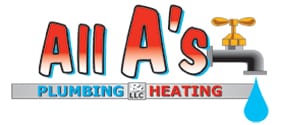How a water softener could save your business money
With rising costs hitting every aspect of your business, you may be looking for every opportunity to save money. One option you may not have considered is using a water softener on your commercial premises.
So-called ‘hard water’ contains high levels of calcium and magnesium. These are abrasive minerals that can cause damage to pipework and can make machinery break down more often. It can also make water heaters and central heating more expensive as scale builds up and makes them inefficient.
Many businesses can benefit from water softeners, such as commercial properties, hotels, restaurants, laundromats, and any manufacturing company that relies heavily on water for their production processes.
A water softener will save your business money in the long and short term.
In the short term, your business may need to spend less on soap and detergent. Hard water prevents the effective lathering of these items, so people in your building will tend to use more.
In the longer term, less sludge and scale build-up in your pipes or heating systems will reduce the frequency of plumbing call-outs over time. Appliances that rely on water, such as washing machines and boilers, will also last longer. These savings add up over time, and a well-made, quality water softener can last up to 20 years.
How does water softening work?
A water softener exchanges those problematic calcium and magnesium ions in the water and replaces them with less harmful sodium ions. This treatment process takes place close to the incoming mains water. If there is a need to reduce the sodium after the water has been softened, a water filter can then be used to make it safer to drink.
An essential part of the softening process is regeneration, where the system removes all the accumulated magnesium and calcium particles. These particles are caught in a resin bed, and the regeneration process removes them from the system at regular intervals.
Will it affect my water flow pressure?
A concern of business owners is whether installing a water softener will reduce their water flow. If your plumbing is gravity-fed (water is drawn from a tank), a water softener will not affect your water flow, as the pressure is related to how high your water tank is placed in your building. If your property uses a direct flow system, we can advise you on the best approach to suit your premises and keep those flow rates high.
How much do I need to spend to get the benefits of softer water?
A wide range of water softeners is available to match how your business uses water. For example, some systems can provide softened water on demand 24 hours a day, seven days a week, and other systems regenerate overnight, providing soft water only during working hours.
We can advise on the best approach for you and how a water softener saves business money – get in touch with All A’s Plumbing and Heating, and we can discuss your options.
Our physical location is in Randolph, New Jersey, in Morris County. We install water softeners that save businesses money in Morris County, NJ and the counties beyond.


Recent Comments